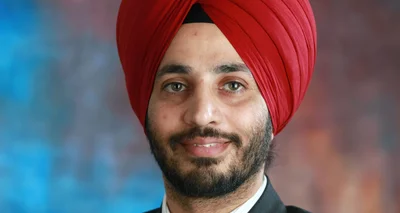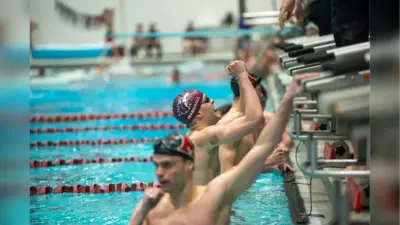Rep. Patrick Windhorst | Facebook / Patrick Windhorst
Rep. Patrick Windhorst | Facebook / Patrick Windhorst
State Rep. Patrick Windhorst (R-Harrisburg) used a recent House Public Safety and Violence Prevention Task Force hearing to question recipients of the state’s new Restore, Reinvest and Renew (R3) grants about how success for the program will be measured.
“One of the questions that we've been asking grantees throughout this process is measurements of success and looking back how you'll know you've been successful both internally and under the terms of the grant,” Windhorst said to hearing witness and Peoria Park District Supervisor of Community Connections Peter Kobak. “So, what are those measurements that you have to determine success?”
Kobak told Windhorst that standards will include such variables as the number of individuals served, hours of programming, number of events held and number of sports and recreation sessions organized.
“When it comes to the things I think you are most interested in – which is how is this impacting violence in our community – we have seen virtually 100% reduction in behavioral issues while they're with us in our program and also after when they've returned to the school district,” Kobak said.
Kobak said R3 organizers are now striving to do even more.
“What we're trying to get better at is measuring outcomes in our more general programming. We have hundreds of recreational programs across the park district and part of our grant is making them more available to more at-risk populations and we've seen some measured success,” he said. “We work at the school district to track their grades, and we're seeing that for the majority of students that we get grades from, they either stay the same or improve while they're in our programming. But we're still trying to find a way to find that information for every kid that comes through all of our programming.”
Distributed by the Illinois Criminal Justice Information Authority (ICJIA), R3 Program funds are pegged for "organizations located in communities that have experienced economic disinvestment and disproportionate violence and incarceration," according to Austin Weekly News.
With eight West Side nonprofits and civil rights organizations making up what’s known as the Westside Collaborative Project, organizers said goals include providing a wide range of services for area youths ages 14 to 24. The program’s $1.8 million in funding comes from revenues generated from the tax on cannabis sales.
Led by the Chicago Westside Branch NAACP, the Westside Collaborative includes organizations offering services ranging from mental health, career development, violence prevention and other support services. All the member organizations that are part of the collaborative have been in operations for years and have already offered programs that serve young people.
More recently, Peoria Park District and Elite Youth Outreach group leaders announced they will now have additional funds for violence prevention initiatives courtesy of a $1.35 million state grant.
Park District Executive Director Emily Cahill told WCBU that the Illinois Criminal Justice Information Authority raised the first $700,000 of the added funds after a productive first year.
Just last year, Cahill said over 2,000 youth and families took part in anti-violence programs offered by the park district, with at least 52 of them being part of the ELITE outreach program.
With homicide rates on the rise across the area, Kobak told WCBU that the park district plans on using the added funds to launch two new initiatives - one of them being the Summer of Fun program. As part of the program, more than 12,000 passes were gifted to students and their families for free access to park district facilities, including the zoo and playhouse museum.
Kobak said authorities are also committed to setting aside at least $210,000 of the money for student employees.
“We also are piloting a very large youth workforce development program ... to recruit students from middle school, high school, and community colleges who come from high-crime and at-risk neighborhoods and schools,” he said. “(Students can) gain experience and earn a paycheck with the Peoria Park District. Part-time jobs and internships expose participants to a range of career opportunities in the field of parks and recreation.”





 Alerts Sign-up
Alerts Sign-up